Go Lean Commentary
 So Brain Drains … are bad!
So Brain Drains … are bad!- Brain Gains … are good.
- Nerds, Geeks and Freaks often emerge as high achievers and can propel society forward … or exact revenge.
- We can foster high achievement in our children by modeling best-practices in parenting, like Tiger Moms.
That is the summary … of this February 2020 Teaching Series on Brain Drains by the movement behind the 2013 book Go Lean … Caribbean. This entry, 5-of-5, urges Caribbean people to “live and let live”, positing that we need to retain and attract good people, not judge and condemn them. This concludes the considerations of this Brain Drain series; see the full catalog here:
-
- Brain Drain – Where the Brains Are
- Brain Drain – Brain Gain: Yes we can!
- Brain Drain – Geeks and Freaks: Ultimate Revenge
- Brain Drain – ‘Tiger Moms’ – Is that so bad?
- Brain Drain – Live and Let Live – Introducing ‘Localism’
“Do what you’ve always done; get what you’ve always got”.
Is this still a ‘bridge too far’ for the Caribbean?
You are not in this photo! You do not have to be, just ‘live and let live‘.
It is now time to do somethings different, so that we can get different results.
As related in a previous entry in this series, there are 2 dynamics associated with why people abandon their homeland: Push and Pull.
“Push” – people leave, to seek refuge elsewhere. Social defects result in narrow-mindedness of attitudes and values towards anyone that looks, talks, thinks or loves differently that those in the community. This includes those identified as LGBT, Disabled, Domestic-abused, Medically-challenged.
“Pull”, on the other hand refers to the lure of a more prosperous life elsewhere; many times people are leaving based on a mirage of “greener pastures”, though the “better prospect” may be elusive … especially for the first generation.
So if you don’t want the Brain Drain, there is something you can do to abate the Push factors:
Live and let live …
Would you want to be responsible for pushing people out? Would you want to be guilty of bullying someone to the extent that they just want to take their leave of your presence and proximity?
Would you want to be part of the solution or part of the problem? (This is not just theoretical; think of the recent Transgender Murder in Puerto Rico; yes, “this is on us”, we are the community that failed “Alexa Negrón Luciano”. See Appendix VIDEO.)
The way to forge change in our society is to promote a spirit of liberalism:
Political and moral philosophy based on liberty, consent of the governed and equality before the law.
What is shocking: We do this already – think of the reality at our “All-Inclusive” Hotel Resorts:
Do you really care what religion a resort guest practices on Sunday while on vacation? How about what he/she eats (vegetarian or carnivorous)? Would it matter who he/she shares the room with?
So we are already doing what is needed to reform and transform our societies; we are simply only liberal when the activities are wrapped around an economic engine, like a hotel resort.
This is the manifestation of localism – do what you want, just “over there” away from me. In the previous entry of this series on Brain Gains, localism was presented as follows:
One strategy that is emerging from the mitigation of Brain Drains , and for enabling Brain Gain, is that of localism.
Localism describes a range of political philosophies which prioritize the local. Generally, localism supports local production and consumption of goods, local control of government, and promotion of local history, local culture and local identity. – Source: Wikipedia
All-Inclusive Hotel Resorts – with their fenced-in/walled-off boundaries – are iterations of localism and/or Self-Governing Entities. See this manifestation in this news article here, showing how some Caribbean destinations roll out the welcome-mat for same-sex couples, while others have a reputation for homophobia:
Title: Gay and Lesbian Friendly Destinations in the Caribbean
By: Robert CurleyWith its fun-in-the-sun destinations, carefree attitude, and myriad couples-oriented resorts, the Caribbean seems an ideal vacation spot for gay and lesbian couples. But not all Caribbean islands are created equal: some (notably the French, Dutch, and U.S. islands) roll out the welcome mat for same-sex couples, while others, like Jamaica, Barbados, and the Cayman Islands, have a reputation for homophobia. With the help of the travel experts at LGBT News, here are our picks for the top Caribbean destinations for gay travelers:
1 of 10 – Saba
The tiny island of Saba is known mostly for its diving, hiking, and other outdoor activities, but is quickly gaining a reputation as a bastion of tolerance in the Caribbean, too. Saba was the first place in the Caribbean where same-sex couples could legally wed, has a significant gay and lesbian population of its own, and several dive operators on the island run special outings for gay and lesbian travelers.
————-
2 of 10 – St. Barts
With its laissez-faire French culture and a myriad of private villas to choose from, St. Barts is has been called the most gay-friendly island in the Caribbean. This is the place to get lost in the Caribbean for a few days, far from the cruise-ship crowds. By any measure, with its mix of celebrities, yachties, high-end shopping, and vibrant nightlife, St. Barts is fabulous.
————-
3 of 10 – St. Martin/St. Maarten
Both Dutch St. Maarten and French St. Martin have long had a gay-friendly reputation, with many private villas for rent and beaches and bars where gay and straight couples peacefully coexist. St. Maarten’s reputation was sullied somewhat by a 2004 incident where a gay couple was assaulted near a popular beach bar, but island tourism officials were quick to apologize, and the island remains near the top of the list for many gay Caribbean travelers. Clothing-optional beaches and resorts on the French side of the island earn bonus points. Same-sex marriage is legal here.
————-
4 of 10 – Puerto Rico
Gay travelers in Puerto Rico will find the Caribbean’s only real gay nightlife scene: San Juan highlights include the Atlantic Beach Hotel and Bar (set on a gay beach and with a weekly drag show) and clubs like Eros. On both the mainland and the island of Vieques you can find gay-friendly resorts, and gay travelers in Puerto Rico have the benefit of protection by U.S. antidiscrimination laws, including the recent U.S. Supreme Court ruling legalizing same-sex marriage.
————-
5 of 10 – U.S. Virgin Islands
The U.S. Virgin Islands, St. Croix, in particular, has become a mecca for gay travelers, many of whom wind up at the welcoming Sand Castle on the Beach Resort in Frederiksted. Gay travelers can expect a friendly and tolerant attitude throughout the U.S.V.I., and if public displays of affection are not exactly embraced, the reaction is not likely to be more than a second glance. As with Puerto Rico, U.S. law makes same-sex marriages legal here.
————-
6 of 10 – Curacao
While some Caribbean island privately welcome gay travelers, Curacao has been the most public in its embrace: “With exceptional gay friendly hotels and attractions, [Curacao] encourages gay and lesbian travelers to visit the island and experience its ‘live and let live’ atmosphere for themselves,” says the Curacao Tourist Board, which has a marketing campaign aimed at gays and lesbians and includes information on gay-friendly hotels and clubs on its website. Same-sex couples can get married here, too!
————-
7 of 10 – Aruba
Like its Dutch Caribbean neighbors, Curacao and Saba, the oh-so-popular tourist destination of Aruba is one of the gay-friendliest places to travel in the islands. The Bucuti and Tara Beach Resorts are among several hotels and resorts that bill themselves as welcoming to LGBT visitors; the gay-ownedLittle David Guesthouse is another option. District 7 in Oranjestad is the island’s premier gay bar. All in all, this is a destination that celebrates its diversity openly and fully.
————-
8 of 10 – The Mexican Caribbean
The Mexican state of Quintana Roo, which includes Cancun, Cozumel, Tulum, and the Mexican Caribbean coastline (a.k.a. the Riviera Maya) recognizes same-sex marriages performed in Mexico City, and Cancun has been building a reputation as a gay-friendly destination. The city has gay nightclubs downtown and an unofficial gay beach in the Hotel Zone (Playa Delfines), and hosts the annual Cancún International Gay Festival in May and the Cancún Riviera Maya Gay Fall Festival.
————-
9 of 10 – Cuba
Cuba’s gay community has increasingly stepped out of the closet and into the limelight as the island nation has increased its interaction with the world, Fidel Castro’s daughter, Mariela, heads the Cuban National Center for Sex Education and has advocated for LGBT rights. Vedado is Havana’s de facto gay neighborhood, Mi Cayito the unofficial gay beach, and many of the island’s casas particulares (B&Bs) are gay-friendly. Discrimination still lingers, but Cuba has come a long way since the days where gays were imprisoned and officially persecuted.
————-
10 of 10 – Unfriendly Islands
Ten formerly British West Indies nations still have “buggery” laws on the books and have displayed various levels of intolerance (ranging from mild disdain to outright hostility and criminal prosecution) toward gay and lesbian residents and travelers.These include Antigua & Barbuda, Barbados, Dominica, Grenada, Guyana, Jamaica, Saint Lucia, Saint Kitts and Nevis, Saint Vincent and the Grenadines, and Trinidad and Tobago.
Source: Posted June 4, 2019; retrieved February 29, 2020 from: https://www.tripsavvy.com/gay-and-lesbian-friendly-caribbean-destinations-1488131
Notice the trending …
… the Dutch, French and American Caribbean territories are progressive, liberal and inclusive in their official and unofficial accommodations for the LGBT community – they have learned to “live and let live”. (Do you see how that works? No surprise these countries – France, Netherlands, USA – are very prosperous economically and their colonies represent their colonial masters adherence to Human Rights principles).
While All-Inclusive Resorts are mainstays in today’s Caribbean, the Go Lean book presents a roadmap for the introduction and implementation of formal Self-Governing Entities (SGE) under the administration of the Caribbean Union Trade Federation (CU). The roadmap calls for legal and regulatory compliance by the local government to mandate a laissez-faire allowance of SGE’s. Consider this excerpt from the book (Page 80) for a full definition of the concept.
Tactical – Separation of Powers – State Department – E2: Self Governing Entities (SGE)
The agencies of the [CU’s] State Department will promote and administer all Self-Governing Entities throughout the region. This refers to foreign military bases, scientific labs and industrial/commercial campuses. SGE campuses are presented as economic engines for the region. They will have to contract with their neighboring communities for utilities and services. Many times, these campuses may only be work-sites, and all human needs are dependent on the neighboring communities.These facilities will not be subject to the laws of the local states of their address, rather CU, international, foreign sovereignty, or maritime laws will apply. This structure will not usher in some anarchist movement with “wild, wild west” guidelines. Rather, at the time of incorporation, by-laws (or constitutions) must be presented to the [CU’s} State Department for acceptance. In addition, the “due process” to apply changes to by-laws must also be submitted. This ensures that the SGE administration is in an orderly manner and does not undermine the original charter. For ongoing governance, the SGE must submit reporting (including board meeting minutes) to the State Department, quarterly.
The SGE will have controlled access for their boundaries (walls, fences, canals/waterways, etc) and their focus will be limited to the scope of their charter. A medical campus, for example, can conduct experimental therapies only on their designated grounds. Yet SGE’s must engage the neighboring localities for transport, and infrastructural needs. In the event of emergencies, (though the SGE will define proactively the responsible parties that can call 911), the CU institutions will have the right to intrude on the secured grounds to protect life, limb and/or property.
There is a Good Neighbor mandate for SGE’s to co-exist with their neighbors. So the administration of SGE’s will require careful collaboration with other CU departments, municipal authorities, national governments and foreign entities. The State Department therefore serves as 1st point of contact, a liaison office.
All the while, we have been proselytizing about SGE’s; now we see that this strategy can even be successful for mitigating the Brain Drain in the Caribbean. SGE’s can help to furnish the “Live and Let Live” mentality. The movement behind the Go Lean book have always championed this cause – this is a paramount strategy for reforming and transforming Caribbean society. See how SGE’s have been addressed in many previous Go Lean commentaries – consider this sample:
| https://goleancaribbean.com/blog/?p=17686 | SGE’s allow Enterprise Zones & Industrial Parks despite Communism |
| https://goleancaribbean.com/blog/?p=15907 | Industrial Reboot: Creating Naval Piers as SGE’s – Many benefits flow |
| https://goleancaribbean.com/blog/?p=13677 | Learning Lessons from the Economics of ‘South Beach’ |
| https://goleancaribbean.com/blog/?p=13138 | Prisons Industry – Can bring economic gains despite negatives |
| https://goleancaribbean.com/blog/?p=12146 | SGE’s for Shipbuilding – Facilitating ‘Commerce of the Seas’ |
| https://goleancaribbean.com/blog/?p=7822 | Cancer: Doing More with SGE Research Parks and Treatment Centers |
| https://goleancaribbean.com/blog/?p=4037 | “Training Our Dragons” – SGE’s mitigate the risks of Foreign Investors. |
| https://goleancaribbean.com/blog/?p=2750 | Disney World – Role Model for Self-Governing Entities |
Forging change in society is an Art and a Science.
All in all, it is not easy. In fact, the Go Lean roadmap describes the effort to forge change in the Caribbean as heavy-lifting. Alas, the roadmap has also identified “Soft Power” as an opening for the change to take root. A previous blog-commentary relating Soft Power of Amazon recruiting viable cities for their HQ2 identified:
Wow, what an expensive price to pay. People in cities like Atlanta actually have to clean-up their societal engines; they have to try and get along or Amazon will not consider them. Plus, Amazon is only considering 1 city, so if a community double-downs on the effort to forge a pluralistic democracy – fair treatment to all despite diverse backgrounds and lifestyles – and they are not selected by Amazon, then they would have loved their neighbors … for nothing.
How sad! This satirical comment is the height of sarcasm, but true!
So “can’t we all just get along” is no longer a question, it is now a ‘formula for success’. This is what we must do if we want our communities to survive and thrive, rather than suffer from one “societal abandonment” episode after another – Brain Drains. Even if you – the Public – cannot stomach the idea of people being different, just let them be in their own little corner or campus, in some SGE.
If this is still too much to ask, for any stakeholders in society, then the goal must be to disqualify that person, group, organization or institution. They must be named, blamed and shamed! We must abandon the bad orthodoxies of the past if we want to have a future; “Ghost Towns” do happen and we’d be on the way to such a disposition.
There is no guarantee for the survival of Caribbean communities. If we want to have a future, any future, we must reboot and turn-around. Yes, we can … it is only at the precipice that people change. See this poetic reference here from a previous blog-commentary:
“Well that’s where we are. You say we’re on the brink of destruction and you’re right. But it’s only on the brink that people find the will to change. Only at the precipice do we evolve. This is our moment. Don’t take it from us. We are close to an answer”.
We are there now!
We urge all Caribbean stakeholders to lean-in to this roadmap to reboot the societal engines of the region. Everyone is involved. We must all live and let live. This is how we make our homeland a better place to live, work and play. 🙂
About the Book
The book Go Lean…Caribbean serves as a roadmap for the introduction and implementation of the technocratic Caribbean Union Trade Federation (CU), for the elevation of Caribbean society – for all member-states. This CU/Go Lean roadmap has these 3 prime directives:
- Optimization of the economic engines in order to grow the regional economy to $800 Billion & create 2.2 million new jobs.
- Establishment of a security apparatus to ensure public safety and protect the resultant economic engines.
- Improve Caribbean governance to support these engines, including a separation-of-powers between the member-states and CU federal agencies.
The Go Lean book provides 370-pages of turn-by-turn instructions on “how” to adopt new community ethos, plus the strategies, tactics, implementations and advocacies to execute so as to reboot, reform and transform the societal engines of Caribbean society.
Download the free e-Book of Go Lean … Caribbean – now!
Who We Are
The movement behind the Go Lean book – a non-partisan, apolitical, religiously-neutral Community Development Foundation chartered for the purpose of empowering and re-booting economic engines – stresses that reforming and transforming the Caribbean societal engines must be a regional pursuit. This was an early motivation for the roadmap, as pronounced in the opening Declaration of Interdependence (Pages 12 – 13):
xi. Whereas all men are entitled to the benefits of good governance in a free society, “new guards” must be enacted to dissuade the emergence of incompetence, corruption, nepotism and cronyism at the peril of the people’s best interest. The Federation must guarantee the executions of a social contract between government and the governed.
xvi. Whereas security of our homeland is inextricably linked to prosperity of the homeland, the economic and security interest of the region needs to be aligned under the same governance. Since economic crimes … can imperil the functioning of the wheels of commerce for all the citizenry, the ccidence of this Federation must equip the security apparatus with the tools and techniques for predictive and proactive interdictions.
xix. Whereas our legacy in recent times is one of societal abandonment, it is imperative that incentives and encouragement be put in place to first dissuade the human flight, and then entice and welcome the return of our Diaspora back to our shores. This repatriation should be effected with the appropriate guards so as not to imperil the lives and securities of the repatriated citizens or the communities they inhabit. The right of repatriation is to be extended to any natural born citizens despite any previous naturalization to foreign sovereignties.
xxi. Whereas the preparation of our labor force can foster opportunities and dictate economic progress for current and future generations, the Federation must ensure that educational and job training opportunities are fully optimized for all residents of all member-states, with no partiality towards any gender or ethnic group. The Federation must recognize and facilitate excellence in many different fields of endeavor, including sciences, languages, arts, music and sports. This responsibility should be executed without incurring the risks of further human flight, as has been the past history..
xxiv. Whereas a free market economy can be induced and spurred for continuous progress, the Federation must install the controls to better manage aspects of the economy: jobs, inflation, savings rate, investments and other economic principles. Thereby attracting direct foreign investment because of the stability and vibrancy of our economy.
Sign the petition to lean-in for this roadmap for the Caribbean Union Trade Federation.
———————
Appendix VIDEO – For transgender women, going to the bathroom can turn traumatic or even deadly – https://youtu.be/PFaf2A7wUCo
Bianca Graulau
Posted Feb 27, 2020 – When she used the men’s bathroom, she was sexually harassed. When she used the women’s bathroom, she was humiliated by a female customer, and then fired. Kristy Ramirez’s story is all too relevant after a transgender woman was killed in Puerto Rico hours after being seen in the women’s bathroom.
Bianca’s IG: https://www.instagram.com/biancagraulau/
Video credit: https://www.facebook.com/nandy.torres…
- Category: News & Politics

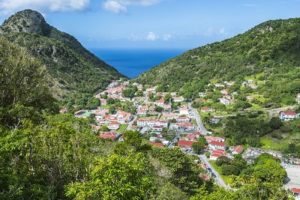










 Tiger parenting is strict or demanding parenting. Tiger parents push and pressure their children to attaining high levels of
Tiger parenting is strict or demanding parenting. Tiger parents push and pressure their children to attaining high levels of  All decent parents want to do what’s best for their children. What Battle Hymn of the Tiger Mother reveals is that the Chinese just have a totally different idea of how to do that. Western parents try to respect their children’s individuality, encouraging them to pursue their true passions and providing a nurturing environment. The Chinese believe that the best way to protect your children is by preparing them for the future and arming them with skills, strong work habits, and inner confidence. Battle Hymn of the Tiger Mother chronicles Chua’s iron-willed decision to raise her daughters, Sophia and Lulu, her way—the Chinese way—and the remarkable results her choice inspires.
All decent parents want to do what’s best for their children. What Battle Hymn of the Tiger Mother reveals is that the Chinese just have a totally different idea of how to do that. Western parents try to respect their children’s individuality, encouraging them to pursue their true passions and providing a nurturing environment. The Chinese believe that the best way to protect your children is by preparing them for the future and arming them with skills, strong work habits, and inner confidence. Battle Hymn of the Tiger Mother chronicles Chua’s iron-willed decision to raise her daughters, Sophia and Lulu, her way—the Chinese way—and the remarkable results her choice inspires. “Battle Hymn of the Tiger Mother hit the parenting hot button, but also a lot more, including people’s complicated feelings about ambition, intellectualism, high culture, the Ivy League, strong women and America’s standing in a world where China is ascendant. Chua’s conviction that hard work leads to inner confidence is a resonant one.”—Chicago Tribune
“Battle Hymn of the Tiger Mother hit the parenting hot button, but also a lot more, including people’s complicated feelings about ambition, intellectualism, high culture, the Ivy League, strong women and America’s standing in a world where China is ascendant. Chua’s conviction that hard work leads to inner confidence is a resonant one.”—Chicago Tribune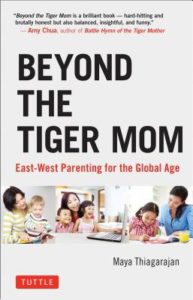 These are just a few of the fascinating questions posed and discussed in Beyond the Tiger Mom, a captivating new book by educator, author, and mother, Maya Thiagarajan. In this research-backed guide, she examines each of the “tiger mother” stereotypes and goes beneath the surface to discover what happens in Asian parenting households. How do Asian parents think about childhood, family, and education and what can Western parents learn from them? And what benefits does a traditional Western upbringing have that Asian parents, too, may want to consider?
These are just a few of the fascinating questions posed and discussed in Beyond the Tiger Mom, a captivating new book by educator, author, and mother, Maya Thiagarajan. In this research-backed guide, she examines each of the “tiger mother” stereotypes and goes beneath the surface to discover what happens in Asian parenting households. How do Asian parents think about childhood, family, and education and what can Western parents learn from them? And what benefits does a traditional Western upbringing have that Asian parents, too, may want to consider?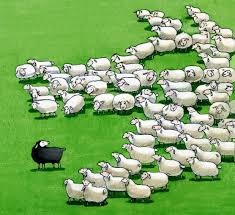 Let’s talk about ostracism …
Let’s talk about ostracism …
 There is a social group that tends to be victimized the worst, at that level: Nerds, “Geeks and Freaks”.
There is a social group that tends to be victimized the worst, at that level: Nerds, “Geeks and Freaks”. We must do the heavy-lifting to retain our people; we must protect the vulnerable, the weak and the innocent. We must be On Guard against bullying and other juvenile persecutions.
We must do the heavy-lifting to retain our people; we must protect the vulnerable, the weak and the innocent. We must be On Guard against bullying and other juvenile persecutions.


 Wait, what?!
Wait, what?!
 Wernher Magnus Maximilian, Freiherr von Braun (March 23, 1912 – June 16, 1977) was a German and later American aerospace engineer and space architect. He was one of the leading figures in the development of rocket technology in Germany and the United States and is considered one of the “Fathers of Rocket Science”. He was also a member of the Nazi party and the Schutzstaffel (SS), and was suspected of perpetrating war crimes during World War II.
Wernher Magnus Maximilian, Freiherr von Braun (March 23, 1912 – June 16, 1977) was a German and later American aerospace engineer and space architect. He was one of the leading figures in the development of rocket technology in Germany and the United States and is considered one of the “Fathers of Rocket Science”. He was also a member of the Nazi party and the Schutzstaffel (SS), and was suspected of perpetrating war crimes during World War II. In 1950, at the start of the
In 1950, at the start of the  The city is nicknamed “The Rocket City” for its close association with U.S. space missions.
The city is nicknamed “The Rocket City” for its close association with U.S. space missions. Caribbean people are being urged to
Caribbean people are being urged to  When China was under the imperial rule of the
When China was under the imperial rule of the 
 Many of us who have ever dared to complain about the place we live in have heard the juvenile rebuttal “If you don’t like it, why don’t you leave?” As it turns out, sometimes people take that advice. When a country’s educated, intelligent, or entrepreneurial citizens take the advice all at once, the phenomenon is called “human capital flight” or “brain drain”.
Many of us who have ever dared to complain about the place we live in have heard the juvenile rebuttal “If you don’t like it, why don’t you leave?” As it turns out, sometimes people take that advice. When a country’s educated, intelligent, or entrepreneurial citizens take the advice all at once, the phenomenon is called “human capital flight” or “brain drain”.



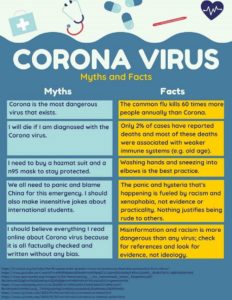
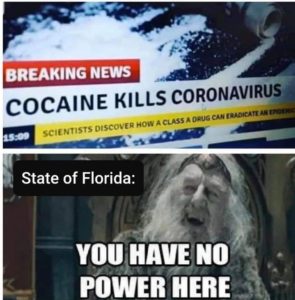


 It is Election Time in Guyana … March 2, 2020.
It is Election Time in Guyana … March 2, 2020.

